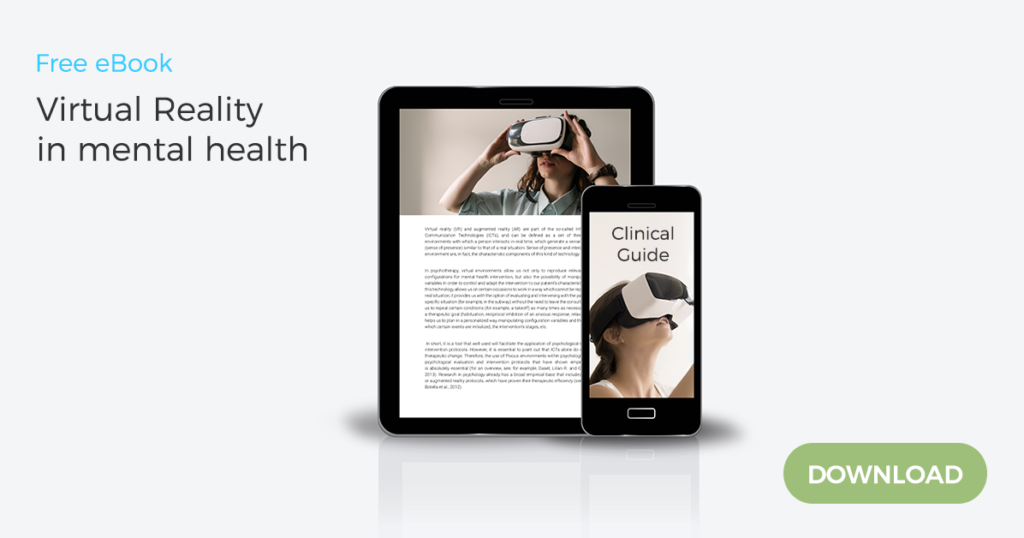Diagnosing psychiatric and neurological diseases is complicated. According to the World Health Organization, between 35% and 85% of mental health problems are not detected or diagnosed (depending on each country). The detection of mental disorders should be done as soon as possible to try and find a solution as soon as possible, thus preventing the problem from worsening.
Nowadays, doctors and researchers are using Virtual Reality (VR) as a new tool. This not only allows us to treat some diseases but also to diagnose them. VR offers several potential advantages, among them, being able to create simulations of experiences that can cause real symptoms and also make more objective diagnoses.
Efficacy of Virtual Reality (VR) to detect mental disorders
Although much more research is needed, there are some studies that assess the effectiveness of VR to detect some mental disorders, including:
● PTSD: From Emory University in Atlanta, several researchers have used Virtual Reality to diagnose and treat veterans suffering from post-traumatic stress in relation to sexual trauma in the armed forces. While the participants were shown clips from a simulated military base and a typical American city, the researchers monitored their heart rate and startle responses. The article that presented the results showed that significant reductions were reported: “in clinical evaluations and self-diagnosed PTSD symptoms”.
● Alzheimer: The UK-based Alzheimer’s Society funded a three-year research project using Virtual Reality to detect early signs of Alzheimer. In the initial study, the spatial memory of the participants was tested by giving them a virtual environment (initially with cones) in which they had to trace their steps back to the initial point without the help of more marks. The first results of the study showed that the VR navigation test was more accurate in diagnosing mild Alzheimer’s disorders than standard cognitive tests, such as remembering figures or symbol tests, according to Dr. Dennis Chan, director of the research.
In addition to PTSD and Alzheimer, Virtual Reality is being tested to diagnose many other disorders such as social anxiety, vertigo, ADHD and brain trauma. There is also a good future perspective in the diagnosis of schizophrenia in young adults. In this sense, Dr. Piotr Slowinski affirms that another of the benefits of VR is that it is cheaper than techniques such as neuroimaging and can be adapted to small spaces in many clinical scenarios.
The expert’s opinion
Although Virtual Reality is still far from widely used to diagnose mental disorders, Daniel Freeman, a professor of Clinical Psychology at the University of Oxford, says that it has the immersive potential of improving the assessment of mental health disorders. To do this, more research is needed into the proposed uses of VR to diagnose mental disorders. Until then, doctors do not use it for diagnoses. Even so, Freeman affirms that the VR is increasingly used in laboratories and research institutions, mainly to inform understanding the causes.
Researchers are persuaded by the prospect of VR, since psychological problems are notoriously difficult to diagnose. A study in 2006 explained that poor diagnoses and disagreements usually come from a lack of consistency on the part of doctors and patients and the “shortage” of terminology.
In 2017, Van Bennekom and his colleagues checked 14 studies where VR was tested as a diagnostic tool. After their verification, they found that the diagnoses tend to be in accordance with diagnoses made by more traditional means. In addition, the researchers involved “generally preferred VR” because it offered them the opportunity to evaluate behaviors in real-time in “realistic environments that mimic daily activities”.
Therefore, according to the studies evaluated in this post, the Virtual Reality will be an experimental diagnostic tool for mental health disorders of daily use, since it offers the possibility of experiencing realistic situations that can be repeated constantly from test to test. treat and cure affected patients.












